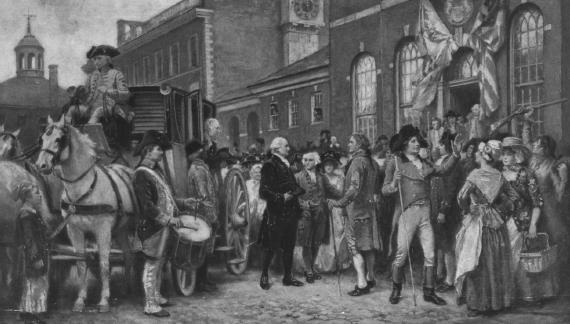Presidential ElectionsInaugurations and the First One Hundred Days |
What were the most memorable inaugural addresses? |
To inspire Americans, inaugural addresses have been carefully composed and edited by presidents and their trusted advisors. Abraham Lincoln’s first inaugural address made no mention of the Republican Party platform, which clearly condemned slavery. Against a backdrop of succession and strife, Lincoln instead admonished listeners, “In your hands, my dissatisfied fellow-countrymen, and not in mine, is the momentous issue of civil war.” Until the final draft, Lincoln’s address had ended with a question for the South: “Shall it be peace or sword?” However, the famous concluding paragraph ended instead on the less contentious note: “We are not enemies, but friends.” Lincoln’s Second Inaugural Address, in which he pled for peace and reconciliation, is considered among his best speeches. President Lincoln called on Americans to “finish the work we are in, to bind up the nation’s wounds.”
John F. Kennedy’s 1961 inaugural address challenged Americans to live up to the nation’s ideals and outlined his ideas on foreign policy. Kennedy’s conclusion, “Ask not what your country can do for you—ask what you can do for your country,” is among the most famous lines from an inaugural address. The inauguration also featured Robert Frost, who read his poem “The Gift Outright” in front of an audience of thousands. Nearly thirty years later, Bill Clinton paid homage to Kennedy when he asked asked poet Maya Angelou to read her poem “The Rock Cries Out to Us Today” at his 1993 inauguration.
The words of inaugural addresses not only usher in a new leader and set the country on its course, they encourage and calm Americans during uncertain times. In 1933, Franklin D. Roosevelt assured those discouraged by the Great Depression by promising, “This great nation will endure as it has endured, will revive and will prosper.” He added, “The only thing we have to fear is fear itself.”

The first president of the United States of America, George Washington, took the oath of office in Philadelphia, Pennsylvania, adding the ending words, “So help me, God,” himself.
